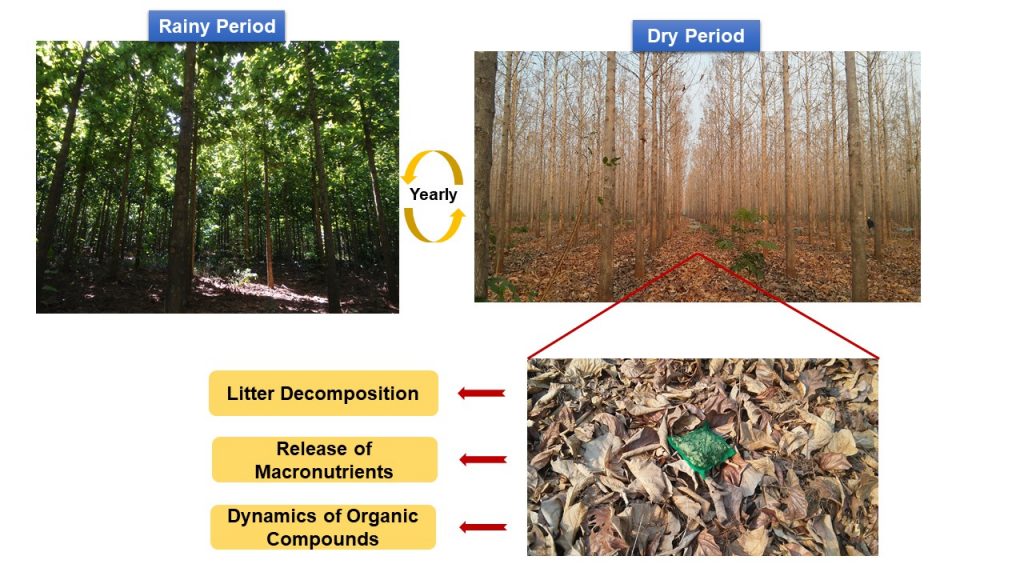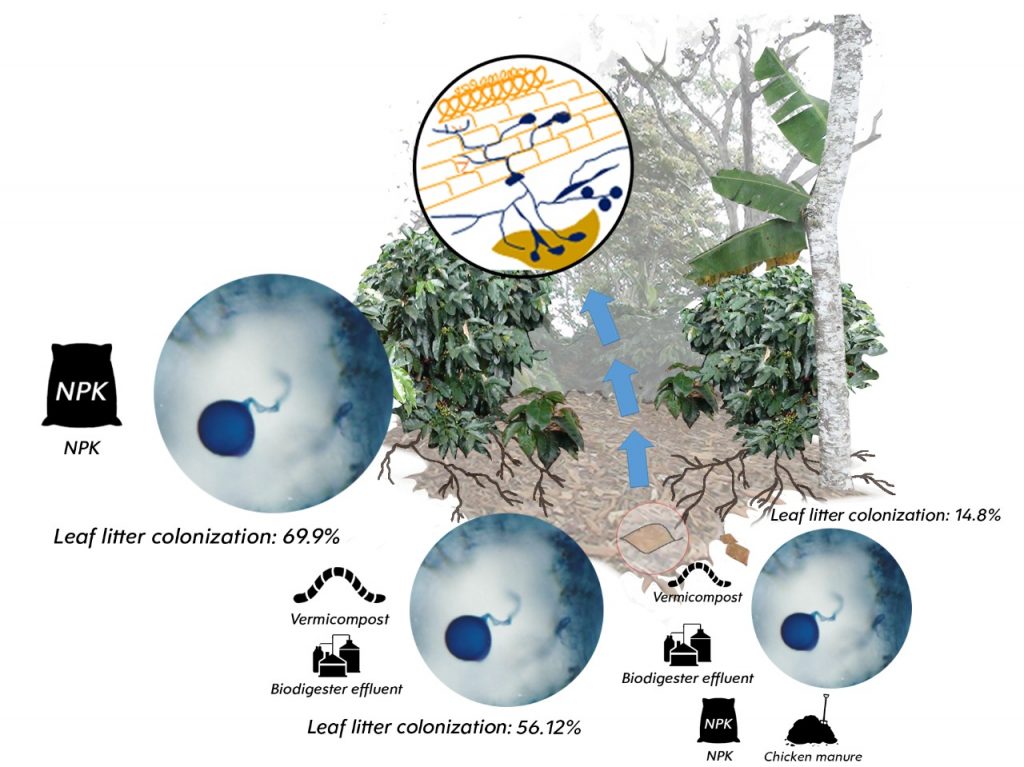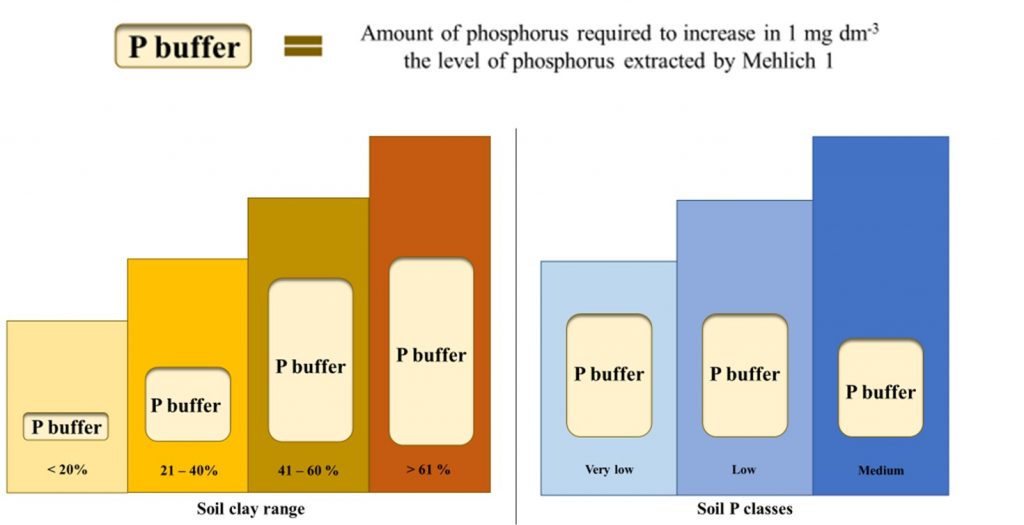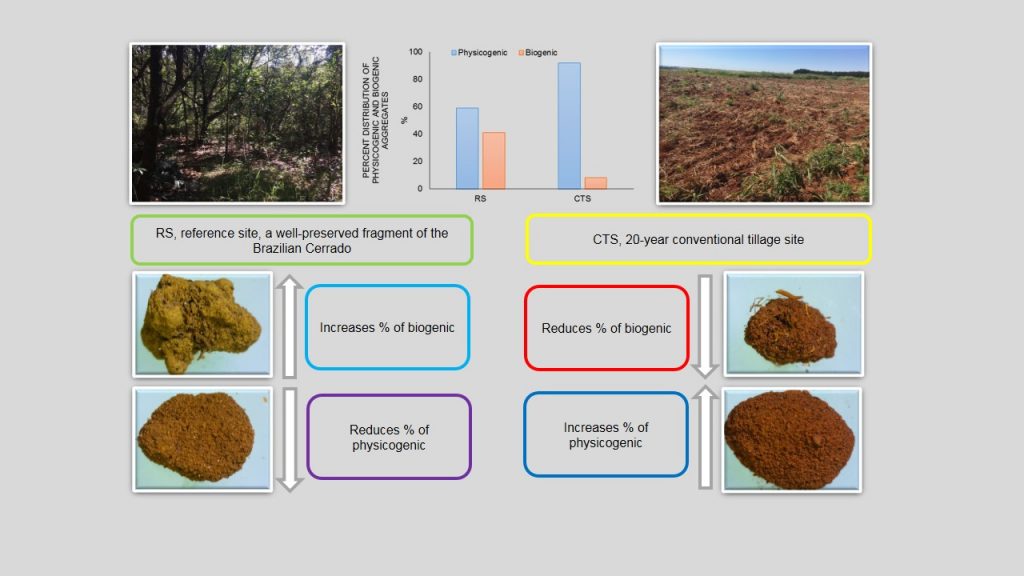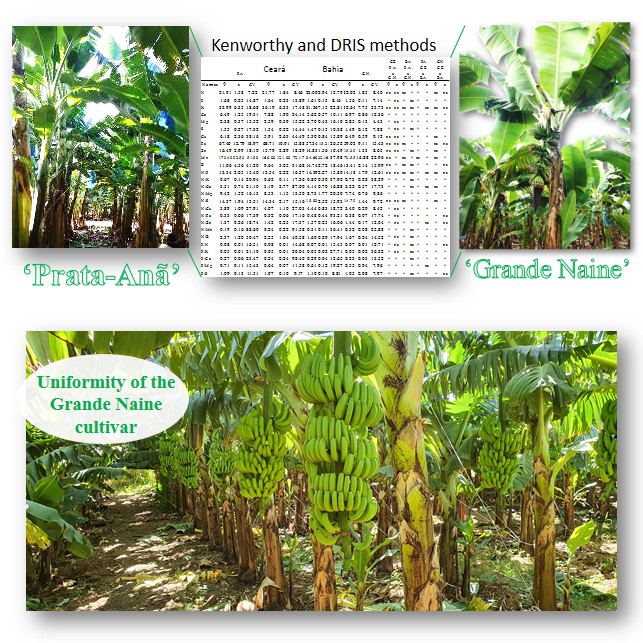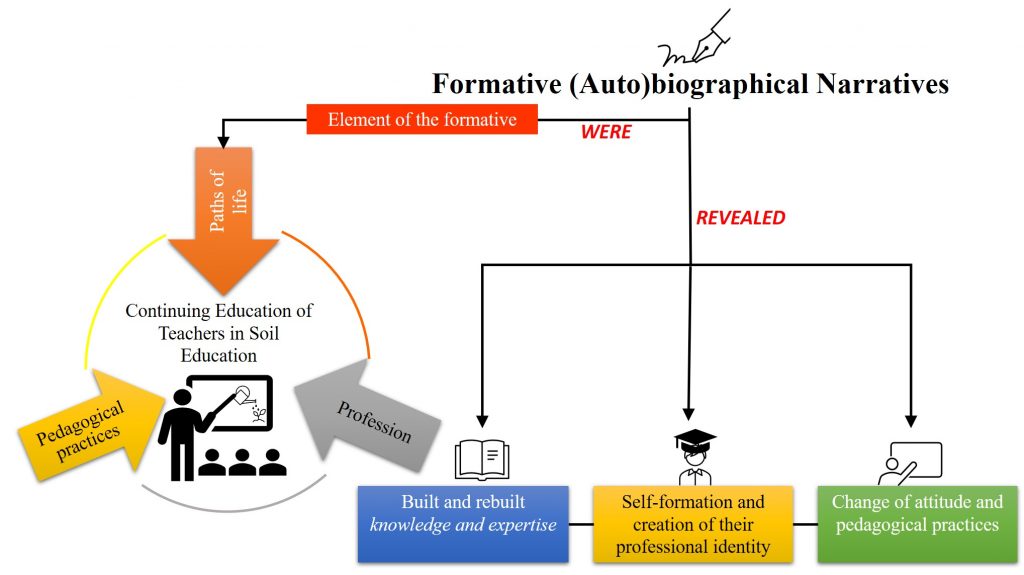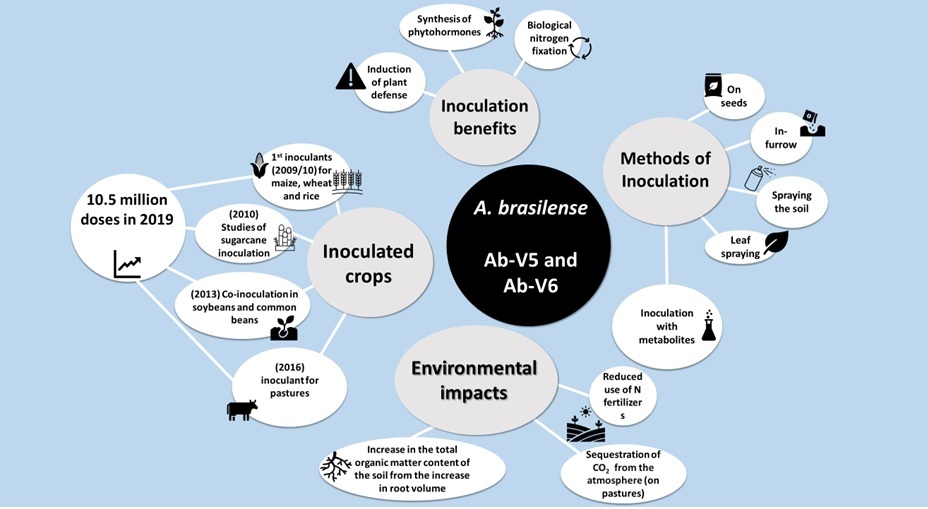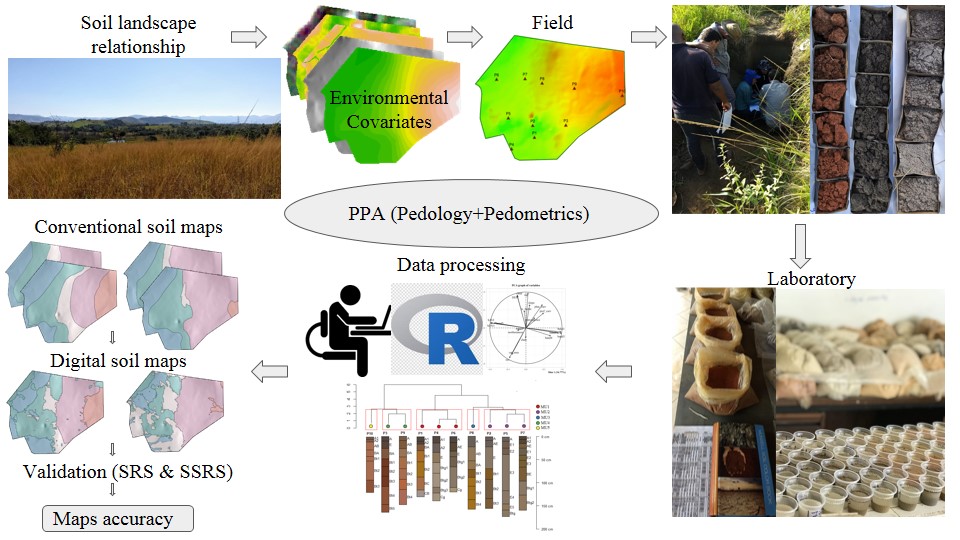Volume 45, 2021
Clonal teak litter in tropical soil: decomposition, nutrient cycling, and biochemical composition
26/nov/2020
ABSTRACT: Litter decomposition dynamics and nutrient release are also dependent on their biochemical composition, and such information is important for adequate nutritional management but is still incipient for plants like teak. This study aimed to evaluate the decomposition dynamics, nutrient release, and biochemical composition of clonal teak litter. The study was conducted in areas of clonal teak stands, in São José do Rio Claro, Mato Grosso, Brazil. Litter collectors were arranged in the area to collect material along the entire […]
Different N-fertilization sources affecting the native soil organic matter mineralization on Technosols under iron ore tailing
26/nov/2020
ABSTRACT: Accidents related to the rupture of iron ore tailings dams have dramatically impacted on the Brazilian natural ecosystem. So, the development of strategies to recover soil organic matter levels and build-up Technosols are required. This study aimed to evaluate the effect of N-mineral and -organic fertilization and the rhizospheric effect on soil organic matter mineralization from Technosols built under iron ore tailings. The experiment was carried out in a greenhouse; we used a factorial scheme 2 × 2 × […]
Occurrence of arbuscular mycorrhizal fungi in leaf litter and roots of shaded coffee plantations under organic and conventional management
15/fev/2021
ABSTRACT Evidence of arbuscular mycorrhizal fungal colonization of mat litter in various ecosystems plus previous reports of external mycelium of those fungi and mycorrhizal roots in litter from coffee plants and shade trees on coffee plantations suggest that they have a relationship with closed direct nutrient cycling between organic matter and living roots. This relationship was first proposed more than 50 years ago. Mycorrhizal symbiosis in tropical crops is affected by agricultural management practices. This study aimed to assess the […]
Refining phosphorus fertilizer recommendations based on buffering capacity of soils from southern Brazil
16/mar/2021
ABSTRACT The phosphorus (P) rates recommended for corrective fertilization-P of soils from southern Brazil may be insufficient to reach the critical level for optimal plant growth. This study aimed to quantify the fertilizer-P rates for total correction fertilization with varying soil buffering capacity in the states of Rio Grande do Sul (RS) and Santa Catarina (SC). Soil samples from 0.00-0.10 and 0.10-0.20 m layers were collected from 41 locations distributed in both states. Twelve P rates were applied to each […]
Physicogenic and biogenic aggregates under different management systems in the Cerrado region, Brazil
23/abr/2021
ABSTRACT An important strategy for the sustainable management of Cerrado soils is no-till (NT) systems, which may improve soil properties, particularly aggregation. Soil aggregates can be categorized according to their formation pathways into physicogenic (Phy) and biogenic (Bio). This study aimed (i) to quantify the relative proportion of physicogenic and biogenic aggregates and (ii) evaluate the levels of total organic carbon and their respective humic and physical fractions in the aggregates’ formation pathways. The following managed and unmanaged sites were […]
Soil spectral library of Piauí State using machine learning for laboratory analysis in Northeastern Brazil
10/mar/2021
ABSTRACT Soil chemical and physical analyses are the major sources of data for agriculture. However, traditional soil analyses are time-consuming, not cost-efficient, and not environmentally friendly. An alternative to traditional soil analyses is soil spectroscopy. This technique is a low-cost and quick analytical method, which can be implemented in a laboratory and/or in-situ. Nevertheless, some spectrometers are expensive and do not contemplate the entire spectrum. Despite this limitation, the main objective of the study was to create a soil spectral […]
Universality of Kenworthy and DRIS norms for prata and cavendish bananas grown in two environments
05/fev/2021
ABSTRACT Tissue analysis results are interpreted by comparing them with nutrient standards; however, using universal standards may lead to a misleading nutritional diagnosis. This study aimed to evaluate the degree of universality of Kenworthy and DRIS norms for irrigated ‘Prata-Anã’ (AAB) and ‘Grande Naine’ (AAA) banana plants grown in two environments. The study was carried out using a database containing leaf nutrient contents and yield data of two farms located in Ponto Novo, Bahia State, and Missão Velha, Ceará State, […]
A teachers’ formative process in soil education takes place while integrated to their life stories
07/abr/2021
ABSTRACT The teacher’s formative process is developed by a critical reflective response to the paths of life, the profession, and its practices. The teacher’s formative process analysis should consider the process’s objectives (theoretical, practical, and emancipatory), and the dimensions that make up the teacher (person, practices, and profession). As a result, this study aims to introduce the elements that outline the categories stemming from the relationship matrix between the objectives and the dimensions, and use them to analyze a formative […]
Outstanding impact of Azospirillum brasilense strains Ab-V5 and Ab-V6 on the Brazilian agriculture: Lessons that farmers are receptive to adopt new microbial inoculants
24/fev/2021
ABSTRACT For decades, researchers around the world search for strategies aiming at higher sustainability in agriculture. The microbial inoculants or biofertilizers are biotechnological products used for different purposes, the main one being to totally or partially replace chemical fertilizers, with an emphasis on N-fertilizers, reducing costs of production and decreasing the contamination of the soil, water, and atmosphere. Depending on the microorganism and the inoculated crop, inoculants can also induce plant protection to abiotic and biotic stresses and positively modify […]
Training pedologist for soil mapping: Contextualizing methods and its accuracy using the project pedagogy approach
10/mar/2021
ABSTRACT There is a growing demand for more detailed knowledge about soils, their functions, and connections with human activities and environmental services. In Brazil, where soil survey and mapping have been scarce since the 1990s, there is a remarkable sense of urgency. Recently, a national soil program was created (PronaSolos) to attend to the massive demand for soil information. PronaSolos is an effort to return to the systematic soil mapping of the national territory, which requires many pedologists who master […]

